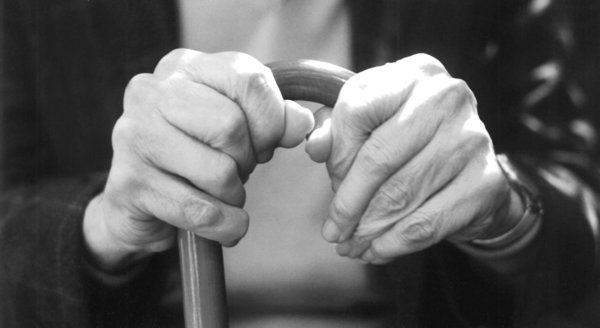
A groundbreaking study, involving University of Strathclyde researchers, aimed at developing new treatments for dementia has received a cash boost.
The team behind the project, co-funded by Alzheimer's Research UK and led by the National Centre for the Replacement, Refinement and Reduction of Animals in Research (NC3Rs), includes Strathclyde’s Dr Trevor Bushell, of the Strathclyde Institute of Pharmacy and Biomedical Sciences, and Dr Michele Zagnoni, of the Department of Electronic & Electrical Engineering, and University College London's Dr Selina Wray.
With current dementia treatments only helping with symptoms for a limited time, there is a need for effective new treatments that can slow or stop diseases like Alzheimer's. Last year, scientists were challenged to use the latest stem cell techniques to pioneer a cell model of dementia in the lab to be used for drug screening, through the UnTangle Challenge, which is run by the NC3Rs open innovation platform, CRACK IT, and co-sponsored by Alzheimer's Research UK, Lilly and Janssen.
Dr Trevor Bushell said:
"The impact and prevalence of dementia in society is increasing and will continue to do so as the life expectancy of the general population continues to grow. Utilising patient-derived neurons, we are in a position to examine how tau protein contributes to neuronal dysfunction and how this contributes to dementia."
Dr Michele Zagnoni said:
"Our consortium brings together both neuroscientists and engineers and this puts us in a unique position to be able to screen novel compounds that may prove useful in treating dementia. This is another example of how multidisciplinary research, at which Strathclyde excels, is pushing the boundaries in the life sciences."
Dr Simon Ridley, Head of Research at Alzheimer's Research UK, said:
"The tau protein is thought to have a key role in diseases like Alzheimer’s and is a promising target for treatments. To develop drugs with the best chance of success, we must develop robust ways to test them in the lab.
"This funding recognises the innovation shown by the team in addressing this problem and we hope their solution will enable big strides in drug discovery for dementia."
The first phase of the challenge saw four teams initially awarded £100,000 for six months to see who could develop the most promising way to recreate the build-up of the hallmark dementia protein tau in cells in the laboratory. Three teams re-applied for the full £900k award, with Dr Wray, and co-investigators Dr Trevor Bushell and Dr Michele Zagnoni, being awarded the top prize.
During the first six months of the project, the team showed they could effectively transform patient skin cells into nerve cells in the lab. The team then used microfluidic devices, tiny chambers that allow them to study small numbers of cells – to show that these cells grew connections and communicated with each other.
The nerve cells also developed a build-up of tau protein, similar to that seen in the brains of people with Alzheimer's and frontotemporal dementia. The team will now work with Edinburgh-based companies RBiomedical and Roslin Cells to scale up their experiment to improve drug discovery for these devastating diseases.

 Man, 44, seriously injured in hospital after crash between Comrie and Rosyth
Man, 44, seriously injured in hospital after crash between Comrie and Rosyth
 John Swinney announces SNP leadership bid
John Swinney announces SNP leadership bid
 Closures on A92 from TONIGHT for roadworks
Closures on A92 from TONIGHT for roadworks
 12°C
12°C
 17°C
17°C
 14°C
14°C